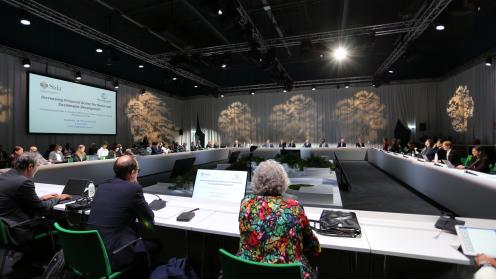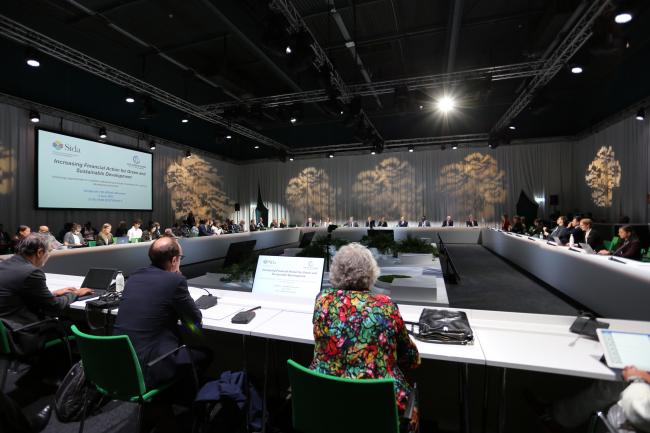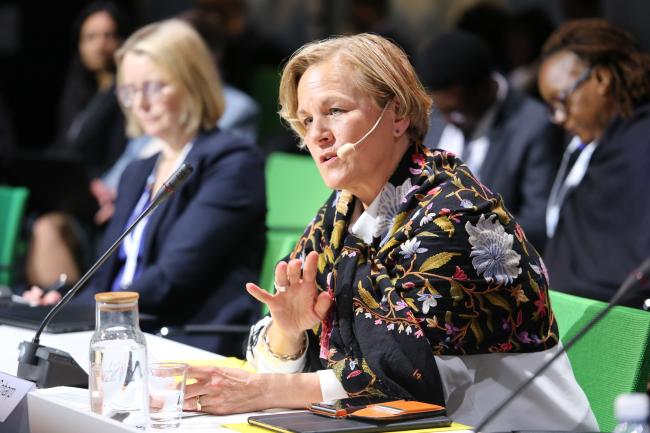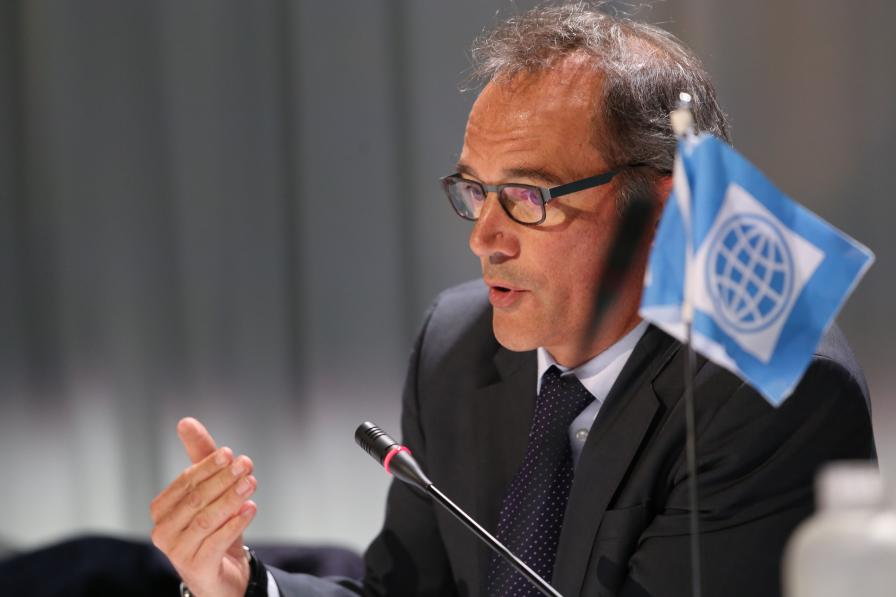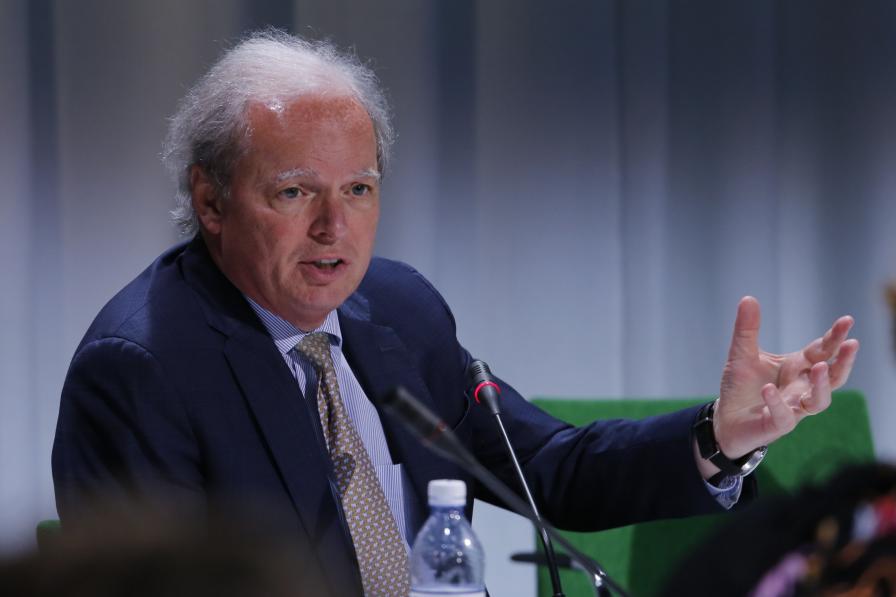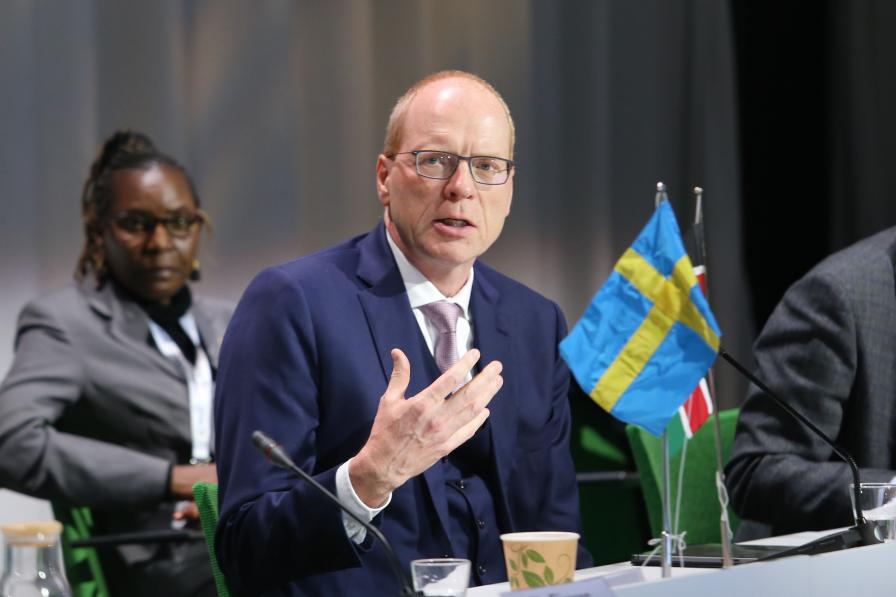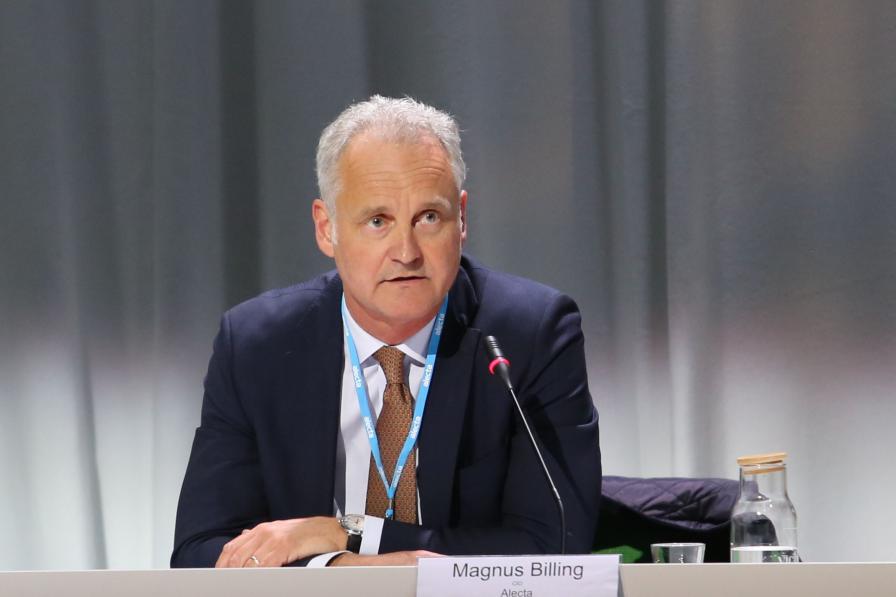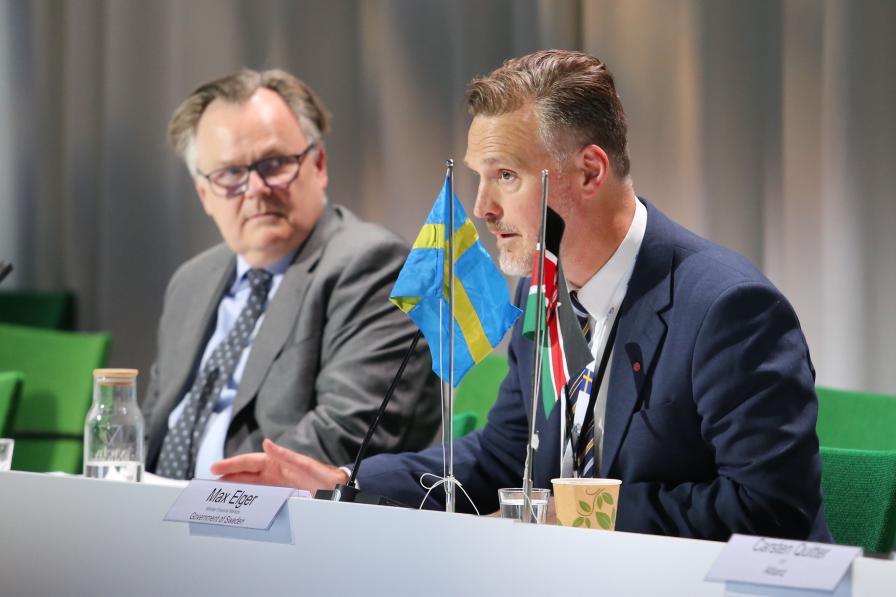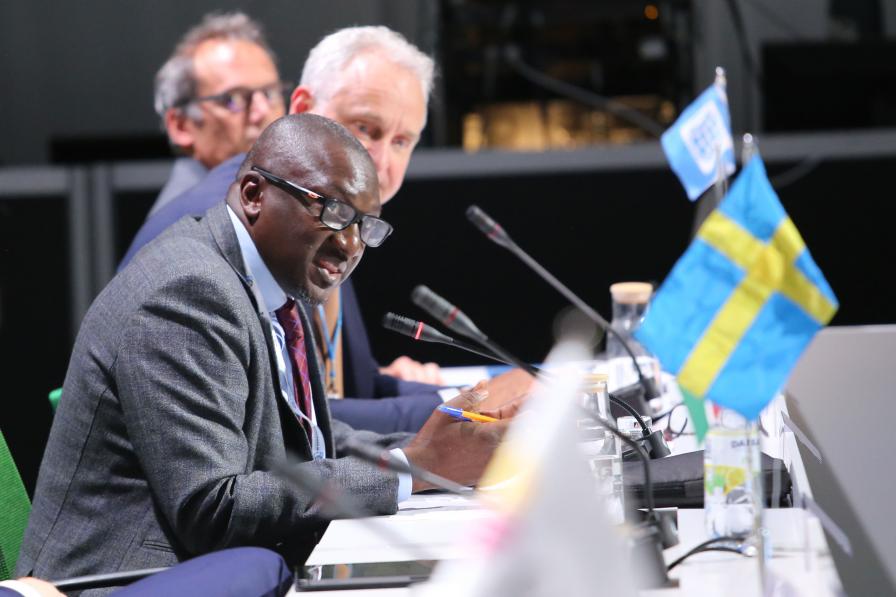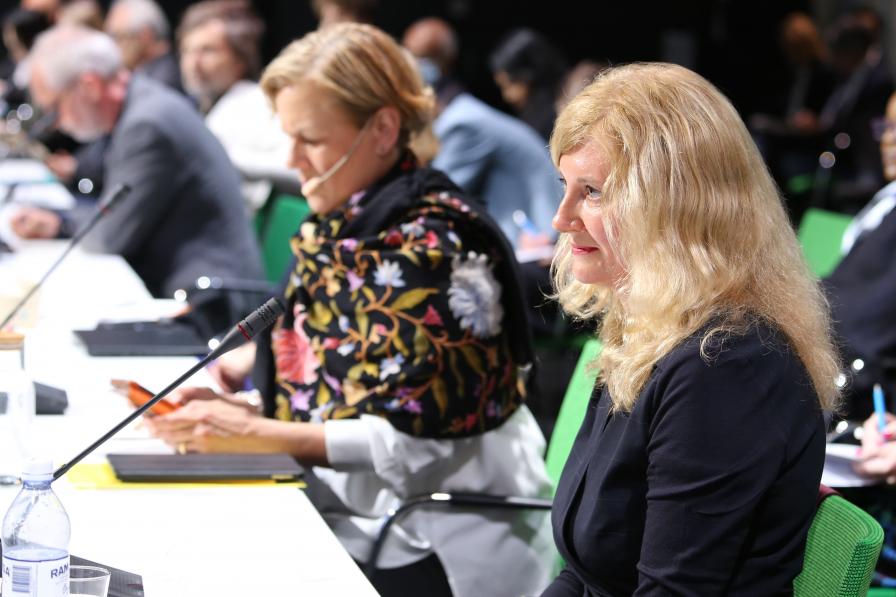About
Panelists called for an appropriate regulatory and incentive framework for the private sector to increasingly invest toward achieving the SDGs, including the private sector in developing countries.
Organizers: The Swedish International Development Agency (SIDA) and the World Bank Group
This side event, co-moderated by Cecilia Sharp, SIDA, and Svetlana Klimenko, World Bank, focused on two overlapping themes:
- Designing and implementing policy reforms and innovative financing solutions for mobilizing private capital at scale in emerging markets, highlighting the role of multilateral development banks (MDBs); and
- Fostering global and country-level partnerships among governments, MDBs, donors, and the private sector to unlock the flow of capital.
Participants discussed potential solutions and challenges related to channeling institutional and private finance towards supporting the achievements of the Sustainable Development Goals (SDGs) and operationalizing green, resilient, and inclusive development, and post-COVID-19 recovery.
In a keynote speech, Max Elger, Minister for Financial Markets, Sweden, emphasized that financial actors should contribute to the required transition, allocating capital to sustainable investments. He noted that the only viable alternative for long-term profitability is to invest sustainably and focused on national policies promoting sustainable financing. Underscoring the huge investments required to achieve the SDGs and enable the transition to a net zero pathway, he pointed to the need to mobilize the whole financial system and work together to achieve our common goals.
Axel van Trotsenburg, Managing Director, Operations, World Bank, gave the second keynote speech. He called for aggressive crisis management that looks at the long-term objective. He called for the appropriate regulatory and incentive framework for the private sector to increasingly invest toward achieving the SDGs and noted the need for a broader conversation in that respect. He underscored the need to also involve the private sector in developing countries. He further called for experimentation regarding financial products, underscoring the need to innovate while working together transparently. He reminded all that “the clock is ticking and we need to act as aggressively as possible.” He called for more consumer-friendly financing initiatives, raising accountability, transparency, and opportunity for corrective action.
In a panel discussion, Magnus Billing, CEO, Alekta, representing the Swedish Investors for Sustainable Development (SISD), a group of 21 financial institutions with the common objective of encouraging more capital towards the SDGs, noted little progress been made regarding financing since 2015. He stressed the need for: harmonization and standardization; increasing the availability of data on investments and their impact; and aligning investment assets to sustainability.
Marc-Andre Blanchard, Executive Vice-President and Head of CDPQ Global, Canada, presented CDPQ, one of the three largest investors in infrastructure and renewables in the world. Stressing that the company wants to be part of the solution, he pointed to an investment of up to USD 35 billion, much on renewables, over the last 10 years. He highlighted a big shift regarding who controls capital worldwide towards institutional investors, pointing to the need to engage them. He discussed the risk-return equation, underscoring relevant knowledge by MDBs and the need to share information and data. Noting business as usual will not work, he urged for coordinating MDBs, development finance institutions, institutional investors, and entrepreneurs in partnership with states for the creation of effective capital markets.
Carsten Quitter, Chief Investment Officer, Allianz, Germany, discussed the need to take into account the risk-return equation, and pointed to ambitious sustainability-related targets set by his company. He noted that positive incentives are not properly aligned. He highlighted the need to make relevant data transparently available to the investing community, including on underlying risk. He called for: engaging private investors earlier in the value chain; partnering up with people on the ground; and jointly developing projects, cautioning that “if the water is up to your chin, don’t lower your head.”
Elin Eliasson, State Secretary, Ministry of Finance, Sweden, pointed to mispricing, weak business environments, undeveloped markets, and lack of bankable projects as important barriers for increasing investments. She highlighted the need for more information on climate- and environment-related risks, and harmonization and standardization through climate-related financial disclosure. She further underscored the role of the World Bank and MDBs.
Collins Nzovu, Minister of Green Economy and Environment, Zambia, recognized that risks exist. However, he stressed that by working together, governments and the private sector including local investors can reduce and mitigate these risks and ensure funding is easily accessible. He pointed to opportunities to invest in Zambia, highlighting a growing economy, with appropriate legal and institutional frameworks.
Alfonso Garcia-Mora, Regional Vice President for Asia and the Pacific, International Finance Corporation (IFC), discussed key constraints for scaling up investments, focusing on the market and investor sides. Regarding the market, he focused on the regulatory, institutional framework for bankable projects, and underscored the need for stability to attract institutional investors in emerging economies. On the investor side, he pointed to pools of projects that comply with similar standards and highlighted that size is critical for institutional investors as they need to take into account transaction costs.
Carin Jämtin, Director-General, SIDA, summarized key messages, including:
- the need for a new financing architecture that contributes towards the SDGs;
- the slow emergence of investments in developing countries is due to related risk, lack of bankable projects, weak institutions, and weak regulatory environments;
- the commitments made by low- and middle-income countries and least developed countries to create an enabling environment must attract investments, pointing to the World Bank as a key partner to scale up investments; and
- the need for data and local knowledge, partnerships, and innovation.
Contact person:
Eva Atterlöv Frisell | eva.atterlov.frisell@ida.se
More information:
To receive free coverage of global environmental events delivered to your inbox, subscribe to the ENB Update newsletter.
